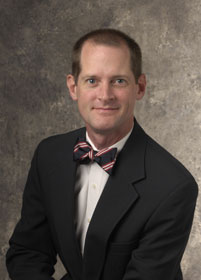I am not inclined to offer commentary on the following articles, but I
do want to offer some perspectives from familiar voices (Rachel Held-Evans, Greg Boyd, Nadia Bolz-Weber) on the story of Job and the problem of pain/evil. If you have some time this week, these articles may inform your thoughts on this week's study.
Rachel Held-Evans wrote a blog post in 2013 called "
The abusive theology of deserved tragedy..." In this post she tackles the particular evangelical response to suffering that declares,
"Bad things happen because God is
angry. This is God’ judgment on undeserving, sinful people. Repent. We brought
this on ourselves." In her words,
This theology is, in a word, abusive, for it blames the victim for whatever calamity, abuse, or tragedy she suffers and says it is deserved.
And:
...the story of Job stands as an ancient indictment on those
who would respond to tragedy by blaming the victim. That’s exactly what Job’s
friends did, and the text is not kind to them for it, because Job is described
as "blameless
and upright, a man who fears God and shuns evil."
Greg Boyd gets into the particulars of the story of Job in his article
The Point of the Book of Job. (It's a detailed article and worthy of a careful reading!) Boyd expresses a similar sentiment to Rachel Held-Evans here:
Sounding remarkably like many Christians today when they confront people in pain, and illustrating perfectly the complaint that satan originally raised against God, his friends insist that since God is perfectly just, Job must deserve what God is dishing out to him.
But also...
This is not to say that everything Job's friends say about God is incorrect. This book is far too subtle to paint everything in either-or terms. It artfully paints a thoroughly ambiguous picture of the cosmos...
In another article, Boyd responds to
The 35W Bridge Collapse and the Book of Job. Here he draws our attention to how closely related the problem of evil/pain is to the question of free will/predestination:
If God was controlling everything, then there obviously would be no
point for God to bring up the unfathomable complexity of creation or his
warfare against powers of chaos. If God is controlling everything, such
matters are utterly irrelevant.
Instead,
God’s appeal to the complexity and war-torn nature of the cosmos is
significant precisely because it shows that God is not an
omni-controlling deity, and that because we humans have next to no
understanding of this complexity or the spiritual battles that engulf
it, we should not be quick to attribute catastrophes to God.
Nadia Bolz-Weber, perhaps not surprisingly, suggests that perhaps we're not asking the right questions at all in response to the story of Job (from an
interview with Religion and Politics).
This is what we see at the end of Job. Throughout Job there’s
basically what we call theodicy: If God’s all good, why are we
suffering? And Job’s friends end up going, “Well, either you did
something wrong, you know, you’re bad and God’s good, and that’s why
you’re being punished, or you’re good and God’s bad, and that’s why.”
You know, there are just really simple categories. It’s either black, or
it’s white...
We like black and white,
dualistic categories, and we love nothing more than to project those
onto God...
We’ve been struggling with this sort of dualistic thinking since the
very beginning. You know what’s really weird? To be human and God. It
kind of has to be either-or, right? No, it’s queer. It’s like being
sinner and saint. Like Martin Luther said, imul justus et peccator. We’re 100 percent of both all the time.
And here's where I'll insert just a few of my own thoughts. One of the things that has guided me in my studies of theology, especially when it comes to questions of evil and suffering in the world, is the idea that if I find myself faced with an idea about God that is just too horrific to believe, it's actually ok to not believe it. Instead, I believe that there's something that I'm not understanding. There's a truth or a mystery that is beyond my grasp. But it simply does not make sense to believe evil of God. Rachel Held-Evan says it this way (in her article
The Scandal of the Evangelical Heart):
It’s not enough for me to maintain my
intellectual integrity as a Christian; I also want to maintain my emotional
integrity as a Christian. And I don’t need answers to all of my questions to do
that. I need only the courage to be honest about my questions and doubts, and
the patience to keep exploring and trusting in spite of them.
*****************
For more of Greg Boyd's thoughts on Job, listen to his sermon here:
Twisted Scripture: The Book of Job.
Sounding
remarkably like many Christians today when they confront people in
pain, and illustrating perfectly the complaint the satan originally
raised against God, his friends insist that since God is perfectly just,
Job must deserve what God is dishing out to him. - See more at:
http://reknew.org/2008/01/the-point-of-the-book-of-job/#sthash.7eVHmz2Q.dpu
Sounding
remarkably like many Christians today when they confront people in
pain, and illustrating perfectly the complaint the satan originally
raised against God, his friends insist that since God is perfectly just,
Job must deserve what God is dishing out to him. - See more at:
http://reknew.org/2008/01/the-point-of-the-book-of-job/#sthash.7eVHmz2Q.dpuf




